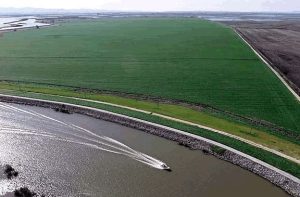Sacramento, CA — The Supreme Court let stand a federal plan to protect California’s Delta ecosystem. The Supreme Court will not review the U.S. 9th Circuit Court of Appeals ruling that protects endangered fish, the delta smelt, and impacts water deliveries to farmers in the Central Valley.
The March 2014 decision sided with the Natural Resources Defense Council (NRDC), Earthjustice, The Bay Institute and the federal government. NRDC says, “Today’s decision is good news for the thousands of fishermen, Delta farmers, and everyone who depends on the health of California’s Bay-Delta estuary and its native fisheries and wildlife.” The group says, “Water exports from the Bay-Delta account for approximately 8 percent of the state’s total water use.” The group is an international nonprofit environmental organization with more than 1.4 million members and online activists.
The initial litigation, filed by water districts in Southern California and the Central Valley, was aimed at the environmental restrictions approved in 2009 by the National Marine Fisheries Service to protect the chinook salmon population, as well as steelhead and green sturgeon.
One of the groups involved in the appeal was the Metropolitan Water District of Southern California. They say, “The Supreme Court decision was not a surprise…the Supreme Court hears less than 1 percent of the 10,000 requests it receives each year.” The water district concluded, “Metropolitan supports California’s co-equal goals of restoring the Delta and providing water supplies. We will continue to work with the regulatory agencies to improve the underlying science in the Delta.”
The Metropolitan Water District of Southern California is a cooperative of 26 cities and water agencies serving nearly 19 million people in six counties. The district imports water from the Colorado River and Northern California to supplement local supplies, and helps its members to develop increased water conservation, recycling, storage
and other resource-management programs.


